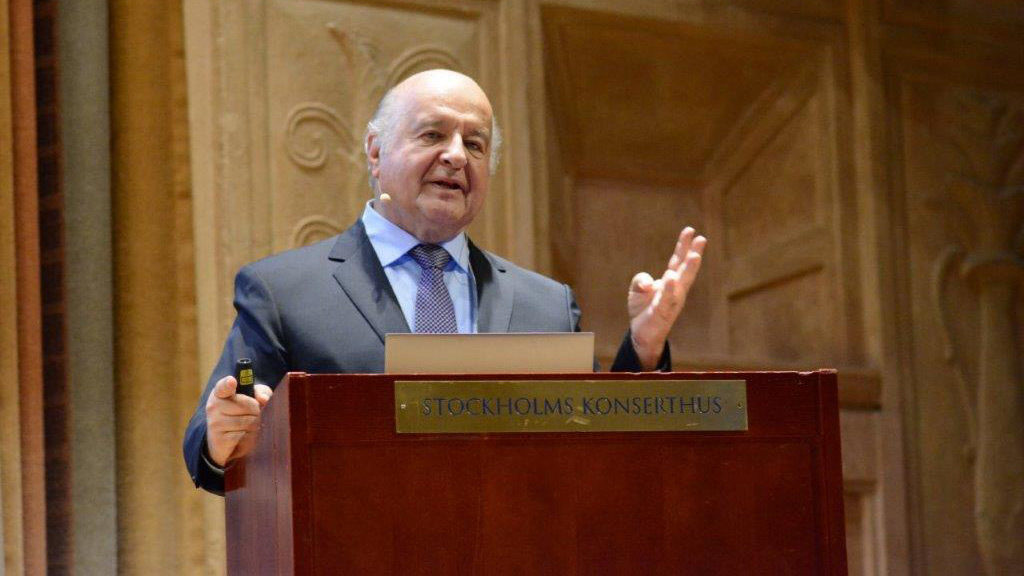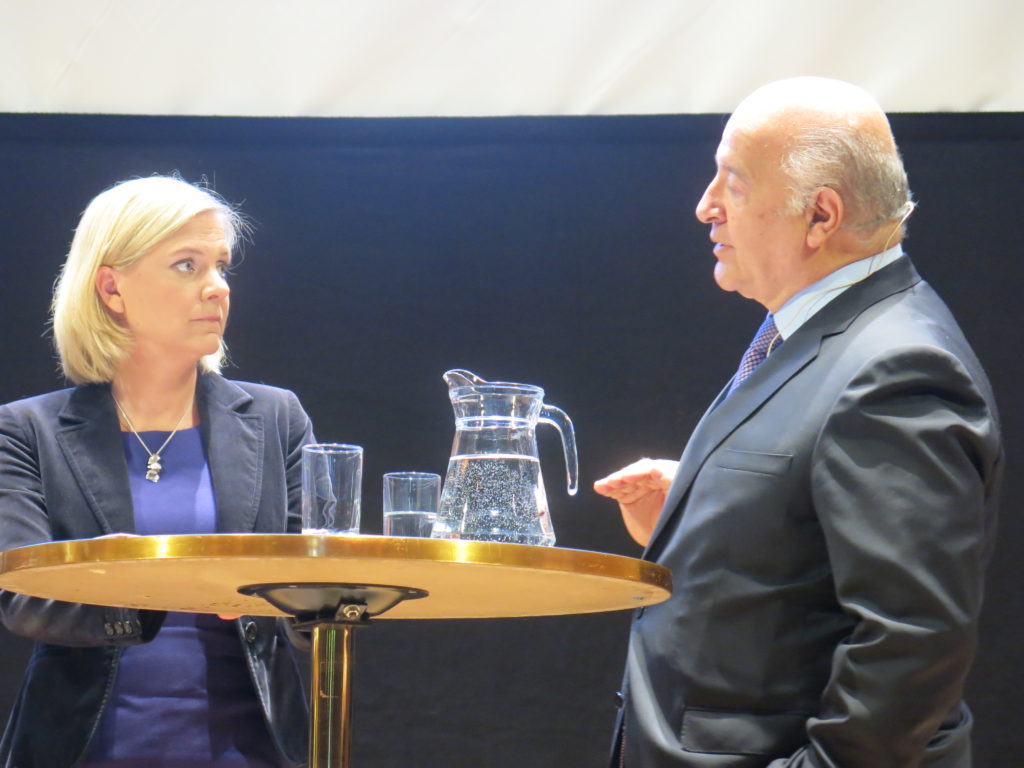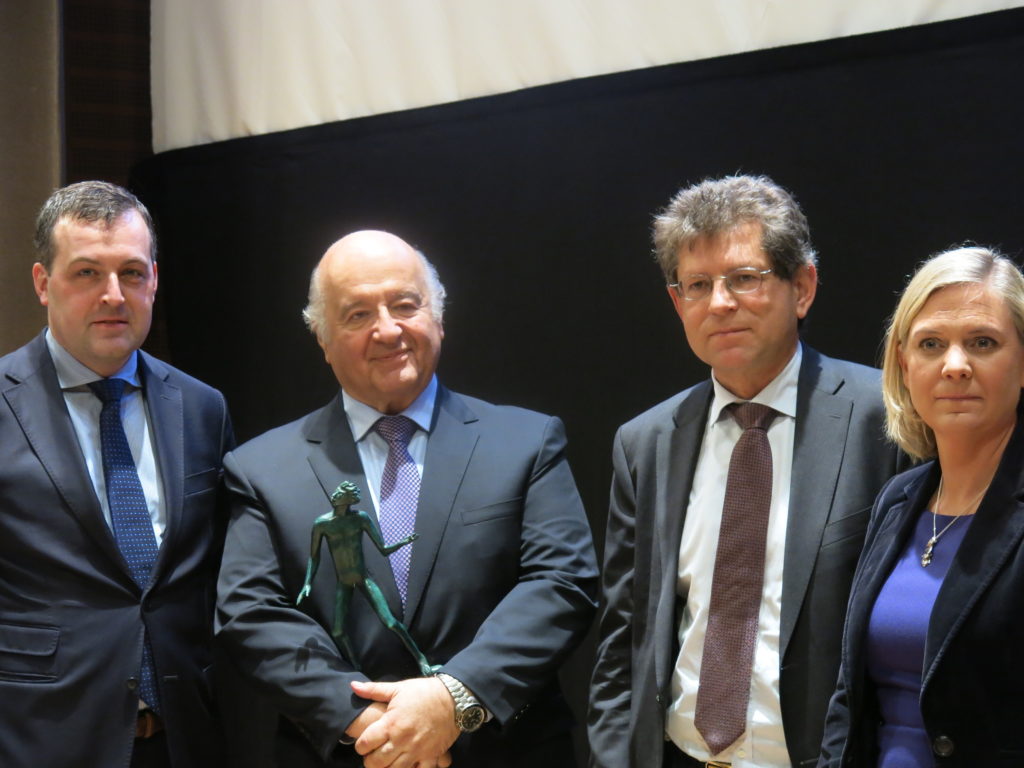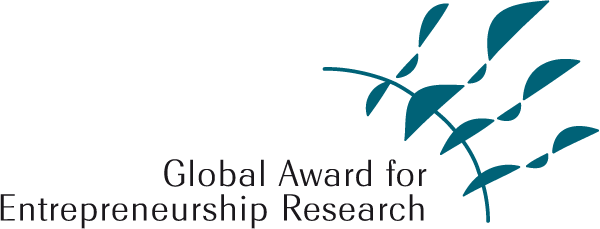Peru, Institute for Liberty and Democracy
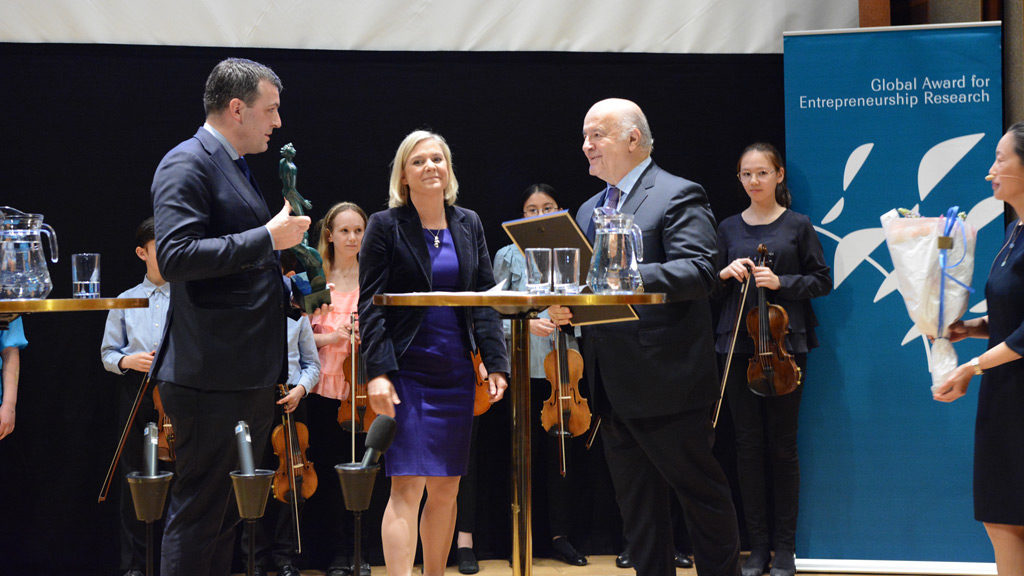
Stockholm Concert Hall, Stockholm May 2017
For developing a new understanding of the institutions that underpin the informal economy as well as the role of property rights and entrepreneurship in converting the informal economy into the formal sector.
Motivation
Hernando de Soto has been a leading intellectual engaged in academic and public policy discussions on global development for the last 30 years. He has made substantial contributions to our understanding of the informal economy as well as the importance of property rights to unleash entrepreneurship and alleviate poverty and underdevelopment. His contributions have led to a new and better understanding of the role of institutions for entrepreneurship, especially in the developing nations.
De Soto’s work has influenced policy worldwide, both in terms of conceptual understanding and practical policy measures. His work constitutes path-breaking analyses of the role the informal economy in poor countries; it has also paved new ways to assess and measure how difficult it is for people to enter the formal sectors. He bases his empirical work on painstakingly gathered, previously unknown data, allowing him to challenge several conventional beliefs regarding poor countries. In particular, de Soto showed that the main problem in many developing countries is not capital but lack of property rights. He argues that poorly defined private property rights prevent people in developing countries from making productive use of assets they control but may not formally own. Entrepreneurs who lack legal ownership of their property cannot obtain credit, sell the business, or expand. Neither can they take business conflicts in court.
De Soto’s analyses have inspired to new ways to alleviate poverty and underdevelopment by reforming property rights systems, business legislation, and regulations. His analyses greatly influence policy throughout the world, both by national governments and by international organizations such as the World Bank. De Soto’s analyses were a main source of inspiration for the World Bank’s Doing Business reports conducted regularly across 190 economies and selected cities at the subnational and regional level. He also inspired academic scholars to engage in research into previously underexplored areas, in particular concerning questions about the regulation of entry and the determinants of successful entrepreneurship in emerging markets, as well as the role of private property rights in economic development.
You can listen to a podcast with Hernando de Soto here.
See a summary from the 2017 Award Ceremony.
Titles, dates and places given above refer to the time of the Award.
Documents
Hernando de Soto SBEJ Presentation Article.pdf
Hernando de Soto Biography.pdf
Hernando de Soto Prize Lecture.pdf
Hernando de Soto Press release.pdf
Photo Gallery
